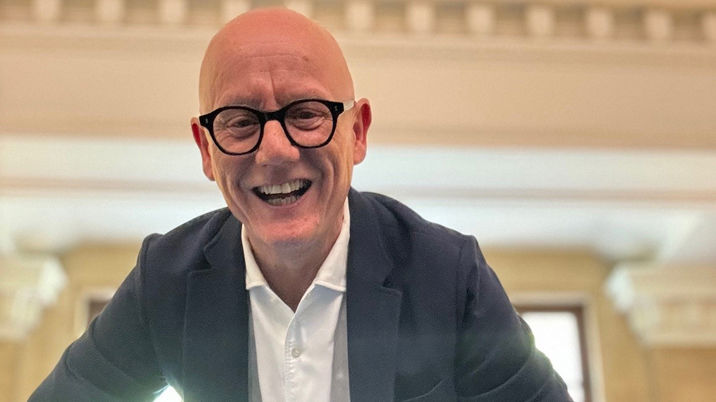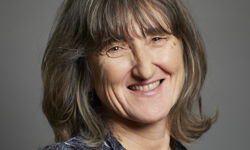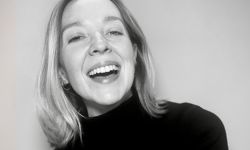
“If you’ve trained as a journalist as I did, it never leaves you. You can’t do social media as a PR person, it would be so anodyne,” admits Yelland.
He believes the writing of tweets is a form of journalism — writing about quite complicated things in not many words.
So, the former Sun editor has recently argued that the leaking of unflattering pictures of Sir Keir Starmer’s chief-of-staff, Sue Gray from the Downing Street garden, was a disgrace.
“It is becoming clear Simon Case is the problem — all this chaos will end when we have a new cabinet secretary,” Yelland wrote on the system now called X.
Then there was the row over Gray earning £170,000 a year, £3,000 more than the prime minister.
“I was paid twice what Sue Gray is now paid as editor of The Sun twenty years ago. The hypocrisy of the media here is laughable,” Yelland argues.
On the Al Fayed rape revelations, Yelland went on the attack and said that the former owner of Harrods “had the ear, the attention — and support of — a number of newspaper editors for far too long.”
He went on to reveal to his 36,000 followers that in his first week as editor of The Sun, Al Fayed had sent him a Harrods hamper with an invitation to meet.
The hamper was returned and the meeting invitation was not taken up.
On the current state of the newspaper industry, Yelland believes the answer depends on what perspective you take.
“I think it is a very unhappy industry and has been for some time in the sense that many people are not enjoying themselves within it,” says Yelland who blames a lack of resources and the increasingly partisan nature of many newspapers.
On the other hand, many newspapers “scrub up well from an external point of view” and punch above their weight internationally and the financial and business news end of the market — the likes of the Financial Times, Thomson Reuters and Bloomberg — is booming.
“It turns out there was no money in mass market newspapers after all,” notes Yelland, yet he still believes that although it may have “lost a couple of limbs” it is not a dying industry.
Yelland does however forecast a limited future for print. Unlike his near neighbour, the television journalist Michael Crick who likes the feel of print, no print newspapers now come into the Yelland household not even the Sunday papers. His newspaper reading is done entirely online, although print survives for him in the form of the Economist, The Spectator, the New Statesman and the New Yorker magazine.
Partisan press
Yelland is a severe critic of the pro-Brexit press which were prepared, he believes, to print things that were not true and that were not in the economic interests of their readers.
“I believe that very passionately. It was not in the interests of Sun readers to leave the EU but it was impossible to get any content into The Sun during the Brexit debate that wasn’t pro-Brexit. I know that because I tried,” he says now.
“The determination of Rupert Murdoch and Jonathan Rothermere (Viscount Rothermere, chairman of the Daily Mail and General Trust) in particular to leave the EU has cost their readers and will continue to cost their readers a great deal,” Yelland adds.
The coverage of the recent general election campaign was, he believes, far from normal. The right-wing papers had lost “their man”, Boris Johnson, and they knew that if Sir Keir Starmer won, “they were out of power entirely and that is where we are now.”
As the former Sun editor sees it, the Conservative press are now behaving like journalistic terrorists going for key bridges in hit and run attacks on everyone from Gray to Deputy Prime Minister Angela Rayner.
He has been told that the Mail on Sunday has had a team on Rayner for the past two years and “if they don’t get her on one thing, they move to another.”
Yelland, whose second wife Charlotte Elston was until last year PR director of BBC Studios, believes the Conservative press have “cowed” the news division of the BBC by going after it for commercial reasons on a daily basis.
“They dictate the national debate, the political agenda. In a way that is more potent now because the BBC is under such pressure to balance,” explains Yelland.
In the blood
The former Sun editor cannot remember a time when he didn’t want to be a journalist even though there was no connection with the industry in his adoptive family.
Then, years later, he found out that his birth father, the late John Sheridan was an Irish folk singer and radical journalist and his natural mother was a children’s writer from Harrogate.
After an economics degree, training on the Buckinghamshire Advertiser and regional dailies such as the Northern Echo, there was a stint as deputy editor of Murdoch’s New York Post. Yelland was then asked by Murdoch to write down ten things he would do if he became editor of The Sun, as was Rebekah Wade, now chief executive of News UK.
“Mine must have been better than hers,” says Yelland who became editor of The Sun at the age of 35.
Second thoughts
And then a very strange thing happened which perhaps gave a hint of what was to come.
“As soon as I got the job, as soon as the door was closed, I wasn’t entirely sure I was in the right job or profession any more. It was a very, very odd thing. I wasn’t comfortable in that role,” says Yelland who says there were so many things he didn’t know anything about, which were important to The Sun, such as show business. Being a natural liberal probably didn’t help either.
Another important factor in the evolution of his career had come from his stint on the advanced management programme at the Harvard Business School. He found himself in great demand from members of the Harvard MBA course. The reason, he realised, was that they wanted to know how to handle the media when they became successful, something that was not taught at business school.
After five years as Sun editor, his next step with Rupert Murdoch would have been into management and he said he had two offers, one on the executive committee of News Ltd Australia and the other on Fox News.
For personal reasons, not least the fact that his first wife Tania was suffering from the cancer that later killed her, and their son Max, he felt he needed to be home in the UK.
The appeal of PR
If his wife had not been ill, he would have probably gone to Australia.
Instead, it was into PR with Weber Shandwick and later on to work with Alan Parker’s Brunswick Group.
In a sense, Yelland had already emotionally crossed the divide from journalism to public relations when he had realised that he was more interested in the people he was writing about than he was actually writing about them.
He also confesses he had seen “behind the veil” and was uneasy about it all.
“Was I helping or hindering, particularly the effect on individuals. I love journalism but in my world (The Sun), every person you interact with you burn,” said Yelland.
The distinguished broadcaster and journalist Andrew Neil once asked him why on earth he had gone into PR.
The blunt answer?
“There’s more money in it and it’s really interesting,” replied Yelland who says he found he was good at advising individuals in really difficult situations who also run businesses.
In business, and advising companies, you have to leave your ego at the door. It’s all about the clients.
“What I do is more interesting. But nobody knows. That’s the point really. If you want people to know what you are doing, you have to stay in media,” says Yelland who now believes that the media is not the centre of the world and in many ways is quite peripheral.
Nine years ago, he set up his own agency Kitchen Table Partners to advise high profile individuals on both sides of the Atlantic.
His clients have included the former BP boss John Browne and the late technological entrepreneur Mike Lynch who died in the yachting tragedy off Sicily in August.
“I’m not a multi-millionaire, although I have probably made more than if I had stayed in newspapers. I don’t need the big car and the big title. Some people in our industry will pursue that to the gates of hell. They will be chauffeur drive to the funeral parlour — but none of that stuff matters,” says Yelland.
He has overcome personal challenges ranging from adoption to suffering from alopecia as a boy and later the alcoholism that he has written extensively about.
“I have just celebrated 19 years of continuous recovery,” is how he describes 19 years without a drink.
Yet despite working and advising largely in private his career has now come full circle and he is back in the media spotlight once again with the Radio 4 series on spin doctors and crisis management: ‘When it Hits the Fan’ with Prime Minster Gordon Brown’s former director of communications, Simon Lewis.
David Yelland recently went to a 50th year reunion at his old school, Briggs Grammar in Lincolnshire and made a surprising discovery.
“I realised that I have spent most of my life trying to prove a bunch of boys wrong who quite liked me anyway,” says Yelland who says he has always thought the finishing line in life is not where you think it is.
“Too often, career comes first in the media industries. It was for me for a long time. I would have sold my own grandmother for most of my newspaper career. Not any more. I am happy doing what I am doing,” says 61-year-old David Yelland.
In addition to planning to celebrate many more years of “continuous recovery” he insists that the “best is yet to come” and if it does, it will, as it always has, come unexpectedly out of left field.
This article was first published in InPublishing magazine. If you would like to be added to the free mailing list to receive the magazine, please register here.












